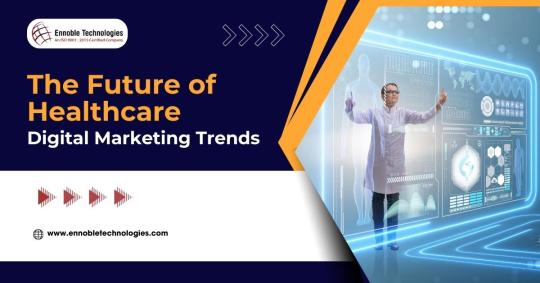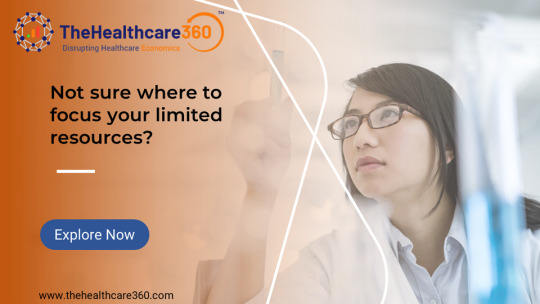#Healthcare data analytics
Link
Healthcare Analytics Software Development enables accurate and timely data analysis for better clinical decision-making, saving lives & costs.
According to a recent survey, the healthcare sector produces immense quantities of data via electronic medical records (EMR), electronic health records (EHR), and health information exchange (HIE). Nonetheless, the difficulty arises in competently examining and leveraging this data to enhance decision-making and proficiently manage it. Healthcare analytics software development services provide an answer to these predicaments.
Healthcare analytics can also be integrated with telemedicine app development and can help various features in this type of heathcare app development
#predictive analytics in healthcare#Healthcare Analytics Software#Healthcare Analytics Software Development#healthcare data analysis software#healthcare data analytics software#Healthcare Data Analytics#business intelligence software for healthcare#clinical analytics software#Clinical Decision Support Systems#data analytics software for healthcare#health analysis software#health catalyst data operating system#Health Information Exchange#healthcare bi software#Healthcare Business Intelligence#healthcare business intelligence tools#Healthcare Information Systems#healthcare predictive analytics software#hospital analytics software#Healthcare Quality Management#medical analytics software#medical data analysis software#Population Health Management#population health analytics software
2 notes
·
View notes
Text
The importance of predictive analytics in healthcare using big data can enhance patient care and address chronic diseases efficiently.
As someone deeply immersed in the healthcare industry, I’ve witnessed a profound transformation driven by the integration of predictive analytics and big data. The importance of predictive analytics in healthcare using big data cannot be overstated, as it offers unprecedented opportunities to improve patient care, optimize operations, and advance medical research. The vast amounts of data generated daily in healthcare settings provide the foundation for predictive analytics, enabling us to forecast future events based on historical and current data. In this blog, I’ll explore the significance of predictive analytics in healthcare, its benefits, practical applications, and the future of this technology.
#Predictive Analytics in Healthcare#Big Data in Healthcare#Healthcare Predictive Analytics#Predictive Analytics for Chronic Diseases#Patient Care Analytics#Big Data Analytics in Healthcare#Predictive Healthcare Analytics#Healthcare Data Analytics#Predictive Modeling in Healthcare#Data-Driven Healthcare Solutions
0 notes
Text
Revolutionizing Healthcare: How Analytics Software is Transforming Patient Care and Operational Efficiency

In today's fast-paced healthcare environment, the ability to harness data effectively has become a critical component of providing high-quality care. With the increasing complexity of medical practices, patient needs, and regulatory requirements, healthcare organizations are turning to advanced healthcare analytics software to streamline operations, improve patient outcomes, and reduce costs. This powerful technology is transforming the industry, enabling providers to make data-driven decisions that enhance every aspect of care delivery.
The Role of Analytics in Modern Healthcare
Healthcare analytics involves the systematic use of data to draw insights, predict trends, and support decision-making in clinical and administrative processes. With the advent of electronic health records (EHRs), medical imaging, and other digital health technologies, vast amounts of data are generated daily. However, without proper tools to analyze and interpret this data, its potential remains untapped. This is where healthcare analytics software comes into play.
Improving Patient Outcomes Through Predictive Analytics
One of the most significant benefits of healthcare analytics software is its ability to improve patient outcomes. By leveraging predictive analytics, healthcare providers can anticipate potential health issues before they become critical. For example, algorithms can analyze patient data to identify individuals at high risk for chronic diseases like diabetes or heart disease. By recognizing these risks early, healthcare providers can implement preventive measures, reducing the likelihood of hospital admissions and improving the overall quality of life for patients.
Predictive analytics also plays a crucial role in managing population health. By analyzing large datasets, healthcare organizations can identify trends and patterns in specific populations, allowing them to tailor interventions and allocate resources more effectively. For instance, during an influenza outbreak, analytics can help predict the spread of the virus, enabling healthcare providers to prepare adequately and mitigate the impact on the community.
Enhancing Operational Efficiency and Reducing Costs
Beyond clinical applications, healthcare analytics software is a powerful tool for improving operational efficiency. By analyzing operational data, healthcare organizations can identify inefficiencies in their processes, optimize resource allocation, and reduce waste. This is particularly important in an industry where margins are often thin, and the demand for cost-effective care is high.
For example, analytics can help hospitals manage staffing levels more effectively by predicting patient admissions and discharges. By aligning staff schedules with anticipated demand, hospitals can reduce overtime costs and ensure that they have the right number of healthcare professionals available at all times. Additionally, analytics can optimize supply chain management by forecasting demand for medical supplies and equipment, reducing inventory costs, and minimizing the risk of shortages.
Moreover, healthcare analytics software can streamline administrative processes, such as billing and claims management. By automating these tasks and identifying potential errors before they occur, organizations can reduce administrative burdens, speed up revenue cycles, and improve financial performance.
Personalizing Patient Care with Advanced Analytics
Personalized medicine is another area where healthcare analytics software is making a significant impact. By analyzing genetic, environmental, and lifestyle data, healthcare providers can develop individualized treatment plans that are tailored to the specific needs of each patient. This approach not only improves patient outcomes but also enhances patient satisfaction by providing care that is more closely aligned with their preferences and needs.
For example, in oncology, analytics can help determine the most effective treatment protocols based on a patient's genetic makeup and tumor characteristics. This precision medicine approach can lead to better outcomes, fewer side effects, and a higher likelihood of successful treatment. Similarly, in chronic disease management, analytics can help personalize treatment plans by considering factors such as a patient's adherence to medication, lifestyle choices, and comorbid conditions.
Ensuring Data Security and Compliance
While the benefits of healthcare analytics software are clear, it is essential to recognize the importance of data security and compliance in this context. Healthcare organizations handle sensitive patient information, and any breach of this data can have severe consequences, both for patients and the organization.
Healthcare analytics software must be designed with robust security features to protect patient data from unauthorized access and ensure compliance with regulations such as the Health Insurance Portability and Accountability Act (HIPAA). This includes encryption, access controls, and regular audits to identify and address potential vulnerabilities.
Moreover, transparency in data usage is crucial. Patients must be informed about how their data is being used, and organizations must obtain consent where necessary. By prioritizing data security and compliance, healthcare organizations can build trust with their patients and stakeholders, ensuring the successful adoption of analytics technology.
The Future of Healthcare Analytics
As healthcare continues to evolve, the role of analytics software will only become more prominent. Advances in artificial intelligence (AI) and machine learning (ML) are expected to further enhance the capabilities of healthcare analytics, enabling even more sophisticated data analysis and decision-making.
For example, AI-powered analytics could help identify patterns in data that are too complex for human analysts to detect, leading to new insights and treatment approaches. Machine learning algorithms could continuously learn from new data, improving their accuracy and predictive power over time.
Furthermore, the integration of analytics with other emerging technologies, such as telemedicine and wearable devices, will create new opportunities for remote patient monitoring and personalized care. As these technologies become more widely adopted, healthcare organizations will need to embrace analytics to stay competitive and deliver the highest quality care.
Conclusion
Healthcare analytics software is revolutionizing the way healthcare is delivered, providing organizations with the tools they need to improve patient outcomes, enhance operational efficiency, and reduce costs. By leveraging the power of data, healthcare providers can make informed decisions that lead to better care for patients and more sustainable practices for organizations. As the industry continues to evolve, the adoption of advanced analytics will be essential for staying ahead in an increasingly data-driven world.
Original Source: Healthcare Analytics Software
0 notes
Text
Healthcare on the Move: AI Guides Your Next Perfect Location
The need for high-performance, AI-driven healthcare site selection software is booming. This technology empowers managers to pinpoint ideal locations for clinics, urgent care centers, dental offices, and hospitals.These locations need to be compliant, adaptable, and cater to a specific demographic. Traditionally, site selection has been a time-consuming process requiring deep local market knowledge and future forecasting.
Embrace the future of healthcare real estate with AI-powered site selection software
Healthcare sites are needed throughout the country and in many different states. Each facility serves its own unique demographics, facilities, population, and budget constraints. The site manager needs a software package that can take all of these variables into consideration as they seek to optimize their business. Healthcare Site Selection is often very time-consuming and requires a thorough knowledge of the local market, competition, operation of the facility, and staffing needs.
In addition to having the ability to quickly analyze location opportunities, Healthcare Site Selection Software can also forecast future demand. Healthcare site managers are continuously evaluating the location to determine which sites will continue to see growth and which will become stagnant or decline in recent years. AI for Healthcare Site Selection Software is designed to meet the ever-changing needs of the healthcare site manager.
Benefits of AI-Powered Site Selection
Healthcare data analytics provides easy access to current staffing information and projections. These tools are invaluable to the site manager as well as the facility administrator. Staffing is a necessary part of the success of any hospital or long-term care facility. As the demand for care in the medical field continues to increase, the demand for additional staff is also expected to grow along with it. This is a situation that will not be easily avoidable, and healthcare-site managers need to know where they can find the best talent at the most affordable cost.
Healthcare site managers can view data such as demographics, population, competition, vacancy rates, current staffing levels, projected job openings, and projected job turnover at any time. This allows them to make informed decisions regarding staffing and available positions. Current staffing statistics can also be accessed from these programs. Healthcare site managers can use these software programs to perform an analysis of staffing needs within their facilities. If a hospital or long-term care facility is expanding or closing, these programs can help the site manager make the best decisions.
Best healthcare analytics companies are designed with the healthcare industry in mind. The programs are designed to seamlessly integrate with the medical websites of physicians' offices, hospitals, home health agencies, and nursing homes. With the use of this software program, site managers have the ability to quickly access patient medical records, conduct secure and non-intrusive background checks, and even communicate directly with patients and their respective primary care providers.
Healthcare site management is made much easier by the interactive nature of site selection software. Site managers can easily browse through detailed information about a hospital or long-term care facility. Once on the site, they can easily compare data and make decisions concerning staffing, furniture and equipment, and operational needs. Healthcare site managers can use site selection tools to compare staffing needs across the board or particular geographic locations.
Healthcare site managers can publish reports, calendars, and statistics using the data provided by their websites. This allows for better communication between site staff and key stakeholders. Healthcare site managers can take advantage of data mining techniques to search for specific information. In the process, they can acquire and organize information quickly and efficiently.
Conclusion
As the healthcare landscape continues to evolve, AI-powered site selection software empowers managers to make strategic location decisions with confidence. By leveraging data and future forecasting capabilities, healthcare real estate professionals can ensure their facilities are positioned for long-term success and meet the ever-changing needs of the communities they serve. Don't let outdated methods slow down your growth. Embrace the future of healthcare real estate with AI-powered site selection software. Discover how this innovative technology can streamline your location selection process and unlock a competitive edge.
0 notes
Text

To get started with Healthcare Data Analytics, acquire foundational knowledge in statistics, data science, and healthcare systems. Learn tools like SQL, Python, and data visualization software. Focus on understanding electronic health records (EHRs) and health informatics. Practical experience through internships or projects is essential for mastering Healthcare Data Analytics.
#data analytics#healthcare#data analysis#innovations#tech trends#technology#healthcare data analytics#career goals#tech career
0 notes
Text
Headsets, Hackers and Health Tech Busts
This month’s episode of “News You Can Use” on HealthcareNOWRadio features news from the month of March 2024
News You Can Use with your Hosts Dr Craig Joseph and Dr Nick van Terheyden
The show that gives you a quick insight into the latest news, twists, turns and debacles going on in healthcare withmy friend and co-host Craig Joseph, MD (@CraigJoseph) Chief Medical Officer at Nordic Consulting…

View On WordPress
#apple vision pro#Ask Me Anything#book recommendation#change healthcare#diabetes management apps#Digital Health#digital health solutions#DigitalHealth#education#excel spreadsheets#Healthcare#healthcare data analytics#healthcare news#Healthcare Reform#Healthcare Security#Incremental#Incremental Healthcare#IncrementalHealth#Innovation#Medical Devices#News#ransomware attack#sci-fi novels#Security#Social Media#technology review#TheIncrementalist
0 notes
Text
Advancements in Healthcare Data Analytics: Pioneering Innovations Shaping the Future of Medicine
Title: Advancements in Healthcare Data Analytics: Pioneering Innovations Shaping the Future of Medicine
In today's world, the provision of adequate healthcare facilities stands as a cornerstone for societal well-being, ensuring populations thrive while mitigating the impact of diseases and pain. Moreover, beyond mere health benefits, robust healthcare systems also contribute significantly to economic growth through revenue generation, particularly in sectors like pharmaceuticals. For instance, in 2022 alone, the pharmaceutical industry amassed a staggering revenue of 1.48 trillion USD, with a considerable portion, 244 billion USD, allocated to pharmaceutical research and development (R&D) projects worldwide. These figures underscore the critical importance of continual innovation in healthcare, particularly in the realm of data analytics, to drive further advancements.
Healthcare analytics, a burgeoning field, encompasses the utilization of data-driven insights to optimize various aspects of medical practice, from disease diagnosis to treatment tracking, clinical trial reporting, and outcome forecasting. This analytical approach not only aids in enhancing patient care but also empowers medical researchers to uncover vital patterns within healthcare records, spanning epidemics, genetic anomalies, allergic reactions, emotional states, and rare diseases.
The future landscape of healthcare data analytics is poised for significant transformation, driven by innovative initiatives spearheaded by forward-thinking minds. Here, we delve into the key trends shaping the evolution of healthcare analytics:
Automated Research:
Traditional methods of healthcare research, reliant on manual data analysis, are increasingly deemed outdated and inefficient in today's fast-paced landscape. In response, healthcare institutions are turning to automated solutions powered by artificial intelligence (AI) to streamline data aggregation and verification processes. By leveraging AI algorithms, data analysts can delve deeper into optimizing problem definitions, expanding market analyses, and devising clinical trial strategies. This automated approach not only enhances efficiency but also enables a more comprehensive evaluation of healthcare trends, from dietary impact assessments to detecting research fraud or data manipulation.
Machine-to-Machine (M2M) Communication:
The proliferation of technologies such as Bluetooth, 5G networks, and machine learning algorithms has facilitated enhanced connectivity and data gathering in healthcare settings. M2M communication enables seamless data exchange between devices, ranging from accessibility aids to medical sensors, paving the way for more efficient healthcare analytics. By harnessing M2M capabilities, healthcare professionals can gather real-time insights into patient behavior, device usability, and performance metrics. Moreover, M2M systems hold the potential to revolutionize accessibility insights, informing the design of more ergonomic and user-friendly medical devices.
Real-World Evidence and Real-Time Visualization:
Real-world data (RWD) presents a rich source of information for healthcare analytics, offering insights beyond the confines of traditional randomized controlled trials (RCTs). Through the analysis of RWD, healthcare stakeholders can derive real-world evidence (RWE), informing decision-making processes across various domains, including treatment efficacy, disease transmission dynamics, and insurance risk profiling. Advanced visualization tools further enhance data interpretation, providing dynamic insights into evolving healthcare outcomes in real-time. By leveraging RWE, healthcare practitioners and policymakers can make more informed decisions, leading to improved patient care and optimized resource allocation.
Big Data in Healthcare Analytics and Research:
The advent of big data has revolutionized healthcare analytics, enabling the processing and analysis of vast datasets sourced from diverse channels, including electronic health records (EHRs), wearable devices, clinical trials, and social media platforms. Through sophisticated analytics techniques, healthcare professionals can extract valuable insights from unstructured and semi-structured data, driving informed decision-making and strategy development. Furthermore, the integration of big data analytics with cloud computing infrastructure enhances data security and accessibility, facilitating seamless collaboration and knowledge sharing across healthcare ecosystems.
In conclusion, the future of healthcare analytics is characterized by a convergence of technological innovation and data-driven insights, reshaping the landscape of medical practice and research. From AI-powered automated research to real-time visualization of healthcare outcomes, these advancements hold the promise of revolutionizing patient care and driving continuous improvement in healthcare delivery. As the demand for expertise in healthcare data analytics continues to grow, collaboration among stakeholders, including medical professionals, researchers, and industry partners, will be essential in realizing the full potential of these transformative technologies.
1 note
·
View note
Text
A Guide to Healthcare Data Integration & Improved Patient Care
Demystifying the New CMS Prior Authorization Rule
The healthcare landscape is evolving rapidly, driven by a focus on streamlining processes, empowering patients, and delivering quality care efficiently. The new prior authorization rule, with its emphasis on the HL7 FHIR data integration standard, is a pivotal step in this direction. But navigating these complexities can be challenging for healthcare providers and payers alike.
This is where Falkondata, with its expertise in healthcare data integration and interoperability, comes in as your trusted partner.
Here are some frequently asked questions about this new rule:
Q: What is the new rule by the Centers for Medicare & Medicaid Services (CMS) about?
A: The new rule by CMS is about improving healthcare data exchange and prior authorization processes. It aims to streamline the prior authorization process, improve data exchange between providers and payers, and give patients more access to their health information. The new rule requires payers to support HL7 FHIR® Prior Authorization API data integration standard and/or X12 278 transaction standard.
Q: How will the HL7 FHIR Prior Authorization API improve the process?
A: This API automates the entire prior authorization process electronically, saving time and reducing administrative burden for both providers and payers. Medicare FFS already uses this API successfully, demonstrating its efficiency.
Q: What about the X12 278 standard? Is it mandatory?
A: While the rule encourages the use of FHIR API, it offers flexibility. Payers who implement a fully FHIR-based API won't be penalized for not using X12 278, allowing them to choose an FHIR-only or combined approach. They can also offer an X12-only option if desired.
Q: What other API requirements are included?
A: By January 2027, payers must:
Expand their Patient Access API to include prior authorization information.
Implement a Provider Access API for data retrieval (claims, encounters, clinical data, prior authorizations).
Exchange patient data (with permission) via Payer-to-Payer FHIR API when patients switch payers or have multiple ones.
Here are all the APIs healthcare payers should implement:

Here is a link to the chart of proposed and current API standards.
Q: How will these changes benefit patients and providers?
A: These data integration efforts aim to:
Reduce administrative burden for healthcare professionals.
Allow clinicians to spend more time on direct patient care.
Prevent delays in care for patients needing prior authorization.
Improve access to health information for patients and providers.
Q: What about the enforcement of these standards?
A: HHS will enforce the use of the FHIR API for prior authorization. However, they offer enforcement discretion for the X12 278 standard, allowing flexibility in implementation.
Q: Is there anything else to know about this rule?
A: The API compliance deadline has been delayed from January 2026 to January 2027 due to public feedback. Additionally, a new Electronic Prior Authorization measure is being added to MIPS and the Medicare Promoting Interoperability Program to track API usage.
By implementing these standards and promoting data exchange, the goal is to create a more efficient prior authorization process, improve access to health information, and ultimately deliver better, timelier care to patients.
Q. How can Falkondata help with this new rule?
A: The new healthcare rule mandates data integration standards like HL7 FHIR and X12 278 to revolutionize prior authorization, but navigating these complexities can be daunting. That's where Falkondata steps in.
We are healthcare data integration experts:
Proven track record: Successfully implemented various FHIR, HL7 messages, and X12 interfaces.
Deep understanding: We grasp provider and payer workflows for seamless integration.
Comprehensive service: We help implement provider, patient, and prior authorization APIs, ensuring compliance and efficiency.
Embrace the benefits:
Reduce administrative burden: Free up valuable time for healthcare professionals.
Empower patients: Enhance access to health information and faster care delivery.
Boost efficiency: Streamline prior authorization processes with automated solutions.
Don't wait to adapt. Contact Falkondata today to discuss your project and:
Simplify compliance: Ensure smooth implementation of data integration standards.
Optimize workflows: Enhance provider and payer communication for better patient care.
Unlock the future: Embrace the evolving healthcare landscape with confidence.
Together, let's build a more efficient and patient-centric healthcare system.
0 notes
Text

Elevate your healthcare organization with effective healthcare digital marketing. Reach and engage patients online. Explore Healthcare Digital Marketing now!
Do Read: https://ennobletechnologies.com/healthcare/healthcare-digital-marketing/
#Data-driven healthcare marketing#Healthcare advertising trends#Healthcare AI applications#Healthcare branding#Healthcare content marketing#Healthcare CRM solutions#Healthcare data analytics#Healthcare Digital Marketing Trends#Healthcare email marketing#Healthcare SEO trends#Healthcare video content#Healthcare website optimization#Healthtech startups#Influencer marketing in healthcare#Mobile health apps#Patient engagement strategies#Social media in healthcare#Telehealth services#Telemedicine marketing#Video marketing in healthcare
1 note
·
View note
Text
Growing Importance of Data Analytics in the Healthcare Industry

The integration of data analytics in medical research is presenting promising results and improving the ability of public health organizations to foresee the outbreak of disease while fostering the prevention of disease and enhancing the quality of life.
Read More:- https://us.sganalytics.com/blog/importance-of-data-analytics-in-healthcare-industry/
0 notes
Text
Growing Importance of Data Analytics in the Healthcare Industry
The healthcare industry has been undergoing ongoing change as a result of the adoption of new systems and procedures to keep up with the digital revolution. This has made it necessary to incorporate data management systems to thrive in a dynamic business climate and provide patients with top-notch care. The emergence of healthcare data analytics is a result of the connection between big data and healthcare. Data guarantees that healthcare organizations can provide patients with value, efficiency, and care at reasonable costs.
1 note
·
View note
Text

Healthcare management & Medical billing - Sharp Info Solutions
Our healthcare revenue cycle management company offers expert financial solutions to streamline revenue and improve cash flow. Contact us to learn more.
#healthcare management#health management#medical billing#rcm#revenue cycle management#rcm in medical billing#healthcare revenue cycle#health analytics#healthcare analytics#healthcare data analytics
0 notes
Text
Risk Adjustment, Risk Adjustment Software, Risk Adjustment Solution, Medicare health plans, Medicare Risk Adjustment Continuous healthcare quality improvement is here. TheHealthcare360™ is the company to dramatically lower the barriers of entry and the operating costs of a value-based operational model for health plans, providers, and hospital systems.

#risk adjustment software#medicare health#medicare health plans#risk adjustment#medicare software#Advanced Healthcare Analytics#Healthcare Data Analytics#Value Based Care
0 notes
Text
#Advanced analytics in healthcare#Predictive Analytics in Healthcare#Healthcare Data Analytics#Big Data in Healthcare#Big Data Analytics in Healthcare
0 notes
Text
A Data-Driven Approach to Healthcare - Brain Injury and Disease Research

Cloud adoption & data pipeline automation in healthcare
Traditionally, healthcare advancements have progressed slowly due to siloed research and delayed results. However, with cloud application modernization, all that is changing for good. A unique collaboration between life sciences organizations and digital solution providers is offering an unprecedented level of insight into managing conditions and achieving optimal patient outcomes. Cloud modernization is expanding healthcare organizations’ ability to use data pipeline automation to effectively diagnose patients.
A prime example of cloud adoption is a nonprofit research organization dedicated to biomedical research and technology. The organization has been instrumental in facilitating advances in brain injury and disease research through its launch of the first cloud-based and interactive platform that supports information and idea exchange to further progress in neuroscience research. It uses big data to promote computational innovation discovery in brain diseases.
Co-created by Hitachi and other partners, this platform is a trusted portal where clinical researchers, physicians, and organizations can collaborate on research and the validation of emerging therapeutics.

The context of merging human and artificial intelligence for analyzing health data
Medical research data is becoming siloed, diverse, and complex. To break this complexity, a robust IT infrastructure with the capacity to aggregate data across multiple studies is required along with harnessing patients’ data to improve the healthcare system.
The organization needed an interactive and scalable platform that would be capable of integrating diverse cohorts and investigators and equipped with a high computing speed that is essential in machine learning and artificial intelligence applications.
These new capabilities would empower users to gain a comprehensive understanding of signature patterns within existing and emerging large-scale datasets and to foster collaboration to promote the efficient use of the research community’s collective knowledge of brain injuries and diseases.
With time, the organization recognized that meeting these challenges would require the expertise of specialists in data pipeline automation and healthcare data solutions to meet the steep requirements of the healthcare industry. Having heard of Hitachi, the organization turned to us for our Cloud Managed Services.
Leveraging healthcare data analytics solutions to build more sophisticated infrastructure
The organization wanted to collaborate with Hitachi to upgrade the user interface and augment the platform’s experience for researchers and the virtual analytical environment to ensure secure data management.
Hitachi was able to deliver an integrated solution that encompassed each component of the build-out. This streamlined project management made the process more efficient and data-driven healthcare innovation helped to further modernize, streamline, and simplify the health diagnostic system for the research organization.

Infrastructure that enables innovation
Cloud modernization was central to helping the organization maximize value in its transformation journey and boost the lives of people. While the organization began with a vision, advances in cloud-based data management, storage, and security brought that to fruition. The interactive platform now allows the organization to leverage best practices to tap into the potency of data pipeline automation and utilization.
Hitachi’s commitment to social innovation
For Hitachi, this project has particular resonance because it is aligned with its commitment to social innovation. To have played a role in accelerating this process and in bringing life-changing drugs and therapies to patients more quickly is always rewarding.
Discover how Hitachi is unlocking value for society with Social Innovation and Digital Transformation in Healthcare :
#advanced healthcare analytics#application modernization services#big data storage#brain disease research#brain injury research#cloud adoption healthcare#cloud modernization#cloud application modernization#data driven healthcare#healthcare analytics solutions#healthcare data analytics#healthcare data infrastructure#healthcare data intelligence#healthcare data management#benefits of cloud computing in healthcare
0 notes
Text
Healthcare Data Management Solutions | SG Analytics

Our clients can sift through complex, large-volume trial data for pharmaceuticals and devices with healthcare data management, providing them with intelligent solutions. A reputable supplier of health data & management systems is SG Analytics (SGA). One of the leading health data & management solutions suppliers in the U.S., our teams, cover conferences, podcasts, and the financial analyses of all the top pharmaceutical firms.
Visit us:
#healthcare data management solutions#healthcare data analytics services#healthcare analytics management solutions#healthcare#healthcare data analytics#healthcare data management#data management solutions#data analytics services#analytics management solutions#healthcare data
0 notes